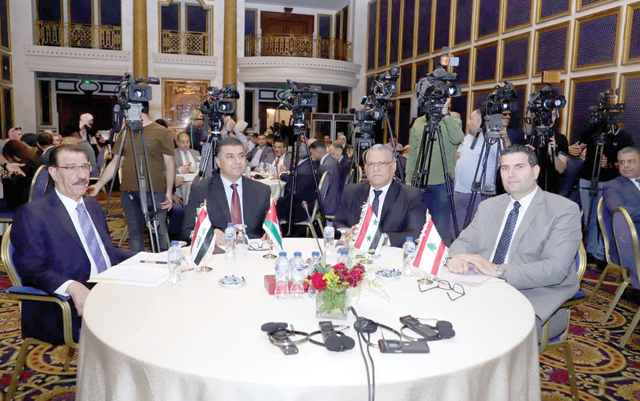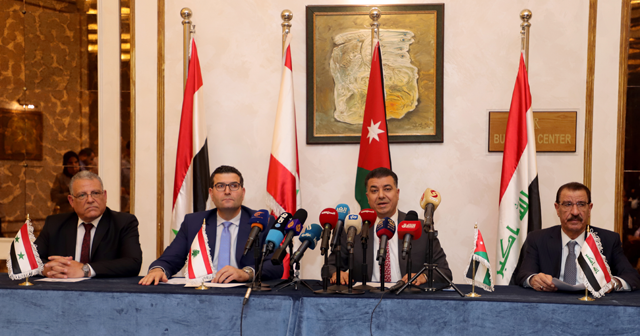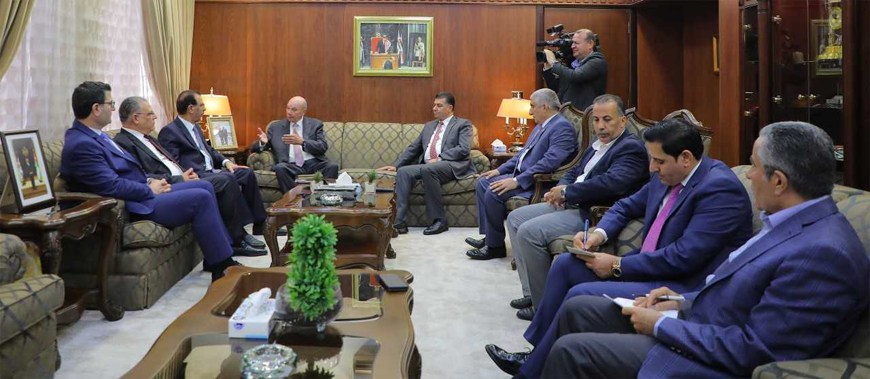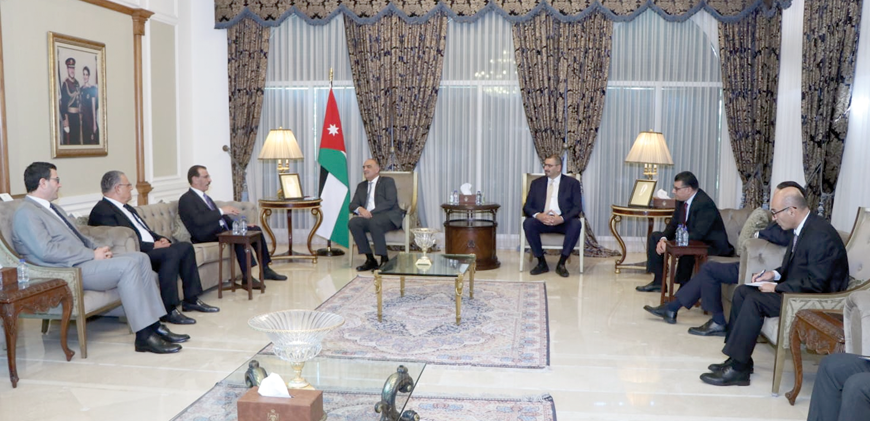You are here
Jordan, Iraq, Syria and Lebanon join hands for food security
By JT - Sep 26,2022 - Last updated at Sep 26,2022

Agriculture Minister Khalid Hneifat, Syrian Agriculture Minister Muhammad Qatna, Lebanese Agriculture Minister Abbas Hajj and Iraqi Agriculture Minister Muhammad Khafaji during a meeting in Amman on Sunday (Petra photo)
AMMAN — The quadripartite meeting of the Jordanian, Iraqi, Syrian and Lebanese ministers of agriculture began in Amman on Sunday to discuss bolstering agriculture, facilitating the flow of agricultural commodities, finding possible solutions to food crises, and partnering with international organisations to support and develop agricultural production.
As a continuation to last July’s meetings held in Beirut, the two-day meeting aims to fulfil the hopes and aspirations of the agricultural sector in participating countries, achieving food security for them, the Jordan News Agency, Petra, reported.
In his opening speech, Agriculture Minister Khalid Hneifat highlighted the magnitude of challenges facing countries in the region, most notably those related to climate change, repercussions of the spread of the coronavirus and the Russian-Ukrainian crisis, in addition to the impact of inflation and the rise in oil prices.
The Jordanian minister indicated that Jordan, being aware of these challenges, has set out to develop, adopt and implement a comprehensive strategy for food security in cooperation with UN organisations.
Lauding the World Food Programme’s endeavours to establish a regional centre for relief and emergency, Heneifat voiced Jordan’s readiness to serve as headquarters for this centre.
Hneifat reiterated the necessity of continuation of these meetings, praising the participation of international organisations, foremost of which are the UN Food and Agriculture Organisation (FAO), the UN Development Programme (UNDP), as well as regional organisations, including the Arab Organisation for Agricultural Development, the World Food Programme, the Islamic Organisation for Food Security, and the Arab Centre for Studies of Arid Zones and Drylands.
Syrian Agriculture Minister Muhammad Qatna noted that the participating countries’ ability to deal global crises and their repercussions, such as food shortages, disruptions in the energy and food markets, and transportation issues, would be bolstered through cooperation.
“Amid current global turmoil, it’s a key national interest of our four countries to focus on steps that would bring stability and food security by facilitating the flow of commodities and information,” he added.
Iraqi Agriculture Minister Muhammad Khafaji underlined the significance of food security to political and economic stability, highlighting the role of such meetings in addressing regional threats to food and water security.
To reduce production costs of fertilisers, pesticides, vaccines, veterinary medicines and pest control programmes, the minister proposed establishing an agricultural calendar, activating forage cultivation, livestock breeding and developing joint projects.
Lebanese Agriculture Minister Abbas Hajj Hassan described these meetings as “a model for a united Arab partnership”, referring to His Majesty King Abdullah’s speech at the UN on threats to food security and stressing the importance of cooperation in this regard.
Related Articles
AMMAN — The agriculture ministers of Jordan, Lebanon, Iraq and Syria on Monday agreed to support the Kingdom's initiative to host the region
AMMAN — Pan-Arab cooperation is essential to build the economic and investment partnerships necessary to overcome the repercussions of the C
AMMAN — Prime Minister Bisher Khasawneh on Sunday met with the ministers of agriculture of Iraq, Syria and Lebanon who are participating in














